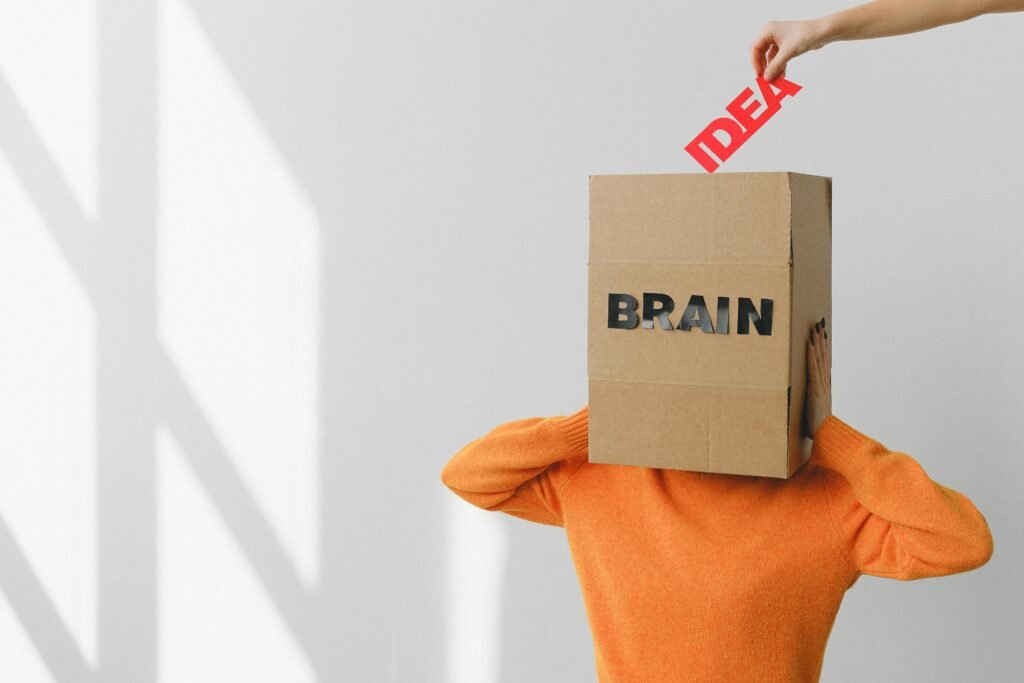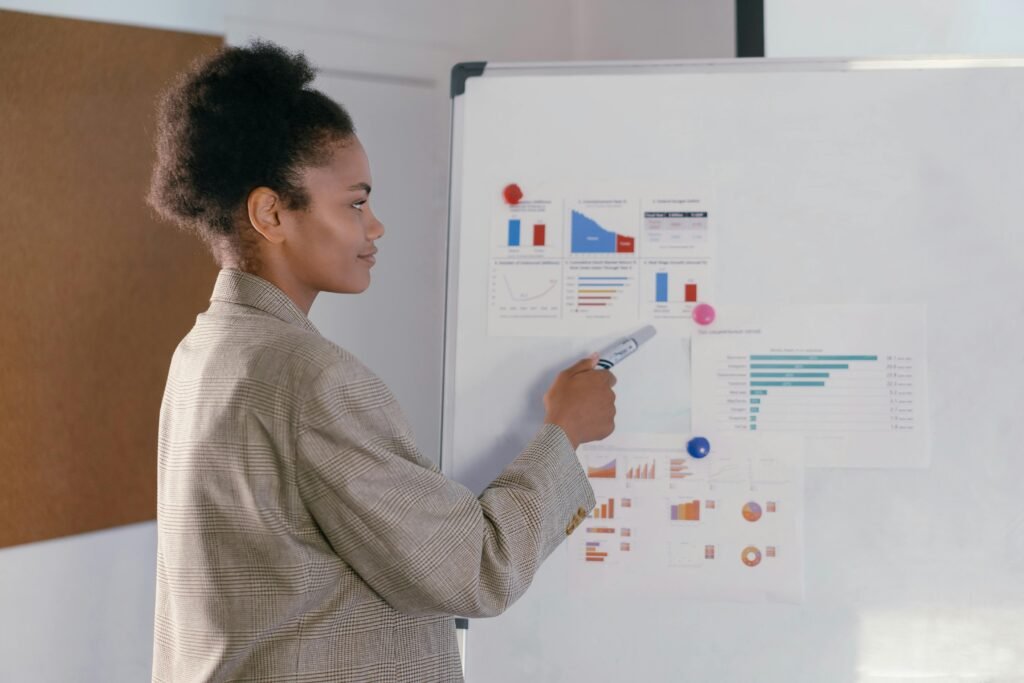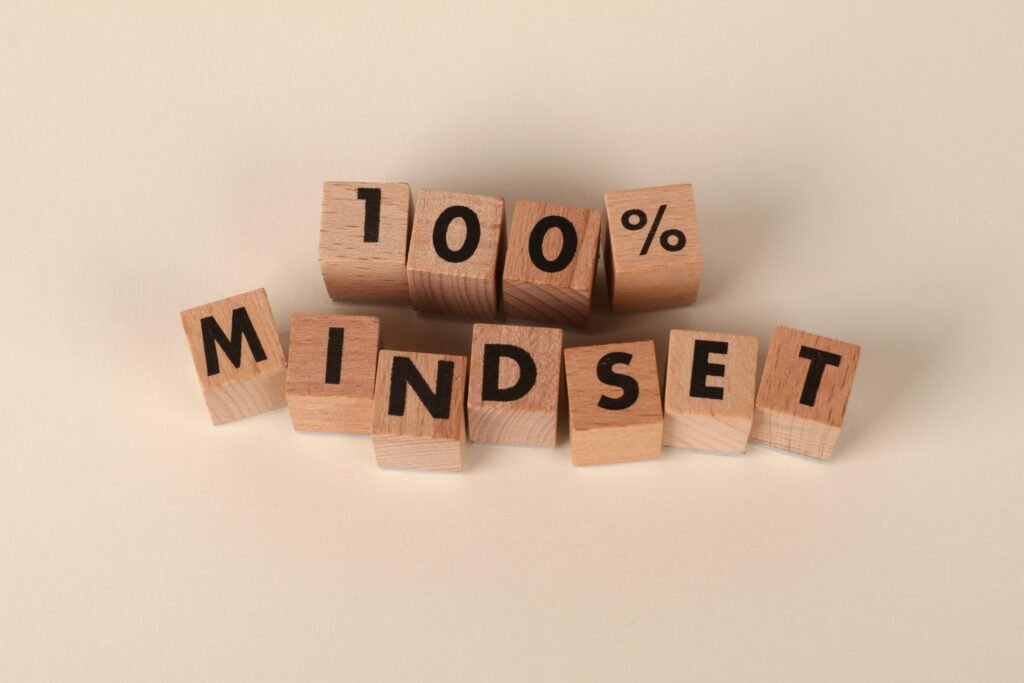
Introduction to Growth Mindset
Developing a growth mindset is about adopting the belief that abilities and intelligence are not fixed traits but can be improved through effort, learning, and persistence.
This perspective encourages individuals to view challenges as opportunities to grow rather than as limitations.
By shifting focus from immediate outcomes to the process of improvement, individuals can embrace the idea that progress is often incremental and requires patience.
A growth mindset also plays a key role in fostering mental flexibility.
It encourages openness to new experiences and a willingness to adapt to changing circumstances.
These qualities are essential for navigating a world that constantly demands creative problem solving and innovation.
When individuals commit to cultivating this mindset, they begin to see failure not as a stopping point but as valuable feedback.
This outlook reduces the fear of trying new approaches and sparks a willingness to experiment.
Creativity thrives in an environment where growth is prioritized. For example, viewing a problem from multiple angles or exploring unconventional methods often leads to novel ideas and solutions.
By embracing a mindset focused on learning and evolution, individuals become more comfortable stepping into unfamiliar territory.
This attitude can be the foundation for developing innovative approaches to both personal and professional challenges.
Additionally, a growth mindset emphasizes the importance of continuous learning.
Whether through reading, taking courses, or engaging in thought-provoking conversations, seeking out knowledge actively challenges the brain and nurtures curiosity.
This ongoing process not only sharpens critical thinking but also strengthens the ability to connect seemingly unrelated concepts, which is a cornerstone of creativity.
Finally, cultivating this mindset involves intentional practice.
It’s not just about adopting a new perspective; it’s about consistently applying it to daily activities, decisions, and interactions.
Every small effort to challenge oneself, embrace feedback, or seek out opportunities to learn builds the foundation for a more adaptable and creative mindset.
Embracing Challenges

Tackling challenges head on is an effective way to build mental flexibility and strengthen creativity.
Stepping out of familiar routines and engaging in new activities can stimulate the brain and encourage innovative thinking.
For instance, taking on tasks that push boundaries; like mastering a new language, trying out a different creative medium, or solving complex problems at work, can help shift mindsets and unlock new perspectives.
These experiences often force the mind to think in unconventional ways, opening doors to fresh ideas.
Harvard professor Alison Wood Brooks discovered that when individuals reframe anxiety as excitement, they perform better than those who try to suppress their anxiety or remain calm.
This suggests that adopting a positive outlook toward challenges can significantly impact performance and mindset.
Rather than avoiding tasks that feel overwhelming, reinterpreting them as exciting opportunities for growth can energize and motivate individuals to tackle them with greater enthusiasm.
Another approach to embracing challenges is to incorporate deliberate practice into your routine.
Focusing on specific areas for improvement, identifying weaknesses, and working to strengthen them can enhance both skillsets and confidence.
For example, if public speaking feels intimidating, attending workshops, rehearsing presentations, or volunteering for speaking opportunities can gradually build expertise and comfort in that area.
A willingness to experiment is equally important.
Taking calculated risks; whether by pitching a bold idea during a team meeting, pursuing a challenging project, or exploring alternative solutions, can foster creativity and adaptability.
These experiences teach valuable lessons, whether the outcomes are successful or not, because each effort contributes to overall growth.
It’s also beneficial to regularly reflect on the learning process.
Reviewing progress and celebrating small victories along the way creates a sense of accomplishment and reinforces motivation.
Using tools like a progress journal can help track these milestones, keeping you focused on development while also serving as a reminder of how far you’ve come.
By confronting challenges with curiosity and determination, you can develop the tools necessary to thrive in unpredictable situations and cultivate creative solutions to the problems you face.
Practicing Curiosity

A curious mind thrives on exploration, pushing boundaries, and uncovering new possibilities.
One way to nurture curiosity is by actively asking open ended questions.
These types of questions stimulate deeper thinking and encourage you to look beyond surface level answers.
For example, instead of asking, “What is the solution to this problem?” consider asking, “What are some unconventional ways this problem could be approached?”
This shift in questioning opens the door to creative exploration and can lead to unexpected insights.
Another effective technique is to engage in activities that spark curiosity.
This might include exploring a new hobby, reading about unfamiliar subjects, or experimenting with creative practices like journaling or sketching.
Exposure to diverse ideas and experiences broadens your understanding and fuels inspiration.
It’s also beneficial to spend time observing your surroundings and noticing details that often go overlooked.
Paying attention to small nuances can help train your brain to find connections between ideas that might initially seem unrelated.
Incorporating intentional breaks into your routine is equally important. When working on a complex problem, stepping away from it can activate the subconscious mind.
These moments of pause often lead to clarity and creative breakthroughs, as the brain has time to process information in the background.
You can also practice curiosity by adopting a beginner’s mindset.
This involves approaching situations as if you’re encountering them for the first time, even if they are familiar.
By letting go of assumptions, you can discover new angles and opportunities.
Additionally, collaborating with people from diverse backgrounds can offer fresh perspectives.
Engaging in conversations with others who think differently or have varied expertise exposes you to new ideas, challenging you to rethink existing approaches.
Learning from Criticism

Constructive feedback can be a powerful tool for personal and professional development when approached with the right mindset.
Instead of perceiving criticism as negative, try viewing it as a resource for identifying areas of growth.
One effective way to practice this is by pausing to reflect before reacting.
Taking a moment to process the feedback allows you to separate emotions from actionable insights, making it easier to focus on what can be improved.
It’s also helpful to ask clarifying questions when receiving feedback.
Phrases like, “Can you provide an example of how I can improve?” or “What steps would you recommend to address this issue?” can turn the conversation into a collaborative effort for growth.
This not only demonstrates a proactive attitude but also deepens your understanding of the specific changes needed.
Another way to benefit from criticism is by keeping a record of feedback received over time.
Writing down suggestions and revisiting them periodically can reveal patterns or recurring themes.
For example, if multiple people mention the need for stronger communication skills, it’s an opportunity to focus on developing that particular area.
Tracking progress on these areas helps you measure improvement and stay motivated to keep learning.
To maximize the benefits of constructive feedback, try to reframe it as a learning experience rather than a judgment of your abilities.
For instance, if a colleague critiques a project, use their input to assess how you can refine your approach in the future.
This mindset reduces the fear of criticism and transforms it into a tool for continuous improvement.
It’s equally important to cultivate gratitude for those who offer thoughtful feedback.
Acknowledging the effort it takes for others to share insights fosters stronger relationships and creates an environment where open communication thrives.
Constructive feedback, when embraced fully, not only strengthens skills but also builds adaptability, an essential trait for problem-solving and innovation.
Persistence and Resilience

One powerful way to foster persistence and resilience is by focusing on small, achievable steps that contribute to larger goals.
Tackling a big task all at once can feel overwhelming, but breaking it down into manageable parts can help maintain momentum and prevent burnout.
For example, if you’re working on a long term creative project, setting short term milestones can keep you engaged and motivated.
Another strategy is to reframe setbacks as opportunities to learn.
Instead of focusing solely on the negative aspects of a challenge, take time to reflect on what it taught you and how you can apply those lessons moving forward.
For instance, if a project doesn’t yield the expected outcome, assess what worked, what didn’t, and how you might approach it differently in the future.
This perspective not only strengthens your ability to adapt but also makes challenges feel less intimidating over time.
Incorporating regular self-assessment into your routine can also support resilience.
Reflecting on your progress and identifying areas for improvement allows you to course correct as needed, ensuring that you stay on track toward your goals.
Tools like journaling or progress trackers can help capture these insights, making it easier to recognize growth and stay motivated.
Celebrating even small wins along the way can reinforce the value of persistence, providing the encouragement needed to continue moving forward.
Lastly, building resilience often requires managing stress effectively.
Engaging in practices that promote emotional well-being, such as mindfulness or physical activity, can create a strong foundation for tackling challenges.
These habits equip you with the mental and physical energy necessary to persevere through difficulties, allowing you to maintain focus on what matters most.
Expanding Perspectives

Expanding your perspectives often starts with deliberately seeking out experiences that challenge your usual way of thinking.
Engaging in brainstorming sessions or participating in workshops can introduce you to new methods and ideas.
These settings allow for an exchange of thoughts with people who may approach problems differently, sparking fresh ways of tackling challenges.
Collaboration with individuals from diverse backgrounds is another valuable way to expand your outlook.
When you interact with people who have varying expertise, cultural experiences, or problem solving styles, you open yourself to alternative viewpoints that might not have occurred to you otherwise.
This diversity often leads to innovative solutions and creative breakthroughs.
Another way to broaden your perspective is by stepping away from routine.
Research has shown that taking purposeful breaks, like spending time outdoors or disconnecting from work, enhances productivity and creativity.
These moments provide mental clarity and allow you to return to challenges with a refreshed outlook.
Whether it’s a walk in nature or time spent on a hobby, shifting focus can give your brain the space it needs to process ideas in the background.
Exploring different fields or industries can also provide valuable insights.
For example, reading about practices in areas unrelated to your own expertise can inspire new approaches to problem solving.
Creative inspiration often strikes when you connect seemingly unrelated concepts, and exposing yourself to a range of disciplines can enhance this ability.
Lastly, experimenting with “what if” scenarios can encourage more open minded thinking.
This practice involves imagining different outcomes or solutions, even those that seem unconventional or improbable.
By allowing your imagination to explore without restrictions, you may uncover ideas that lead to meaningful innovation.
These mental exercises not only fuel creativity but also strengthen your ability to adapt and think critically in unexpected situations.
Setting Growth Goals

Creating clear and purposeful goals is a cornerstone of developing both mental flexibility and creativity.
A practical way to approach this is by using structured methods, like the SMART framework, which ensures goals are Specific, Measurable, Achievable, Relevant, and Time bound.
This process not only brings clarity to what you want to achieve but also helps maintain focus by breaking larger objectives into smaller, actionable steps.
When setting growth goals, it’s important to balance ambition with realism.
For example, if you aim to improve your creative thinking, you might start by dedicating 20 minutes each day to brainstorming or engaging in a new activity that challenges your usual patterns of thought.
Small, consistent actions build momentum and can lead to substantial progress over time.
Tracking your progress is another essential component of goal setting. Using tools such as journaling, digital trackers, or even simple checklists can help you visualize your journey and stay motivated.
Regularly reviewing your goals allows you to assess what’s working, adjust your strategies, and celebrate milestones along the way. Recognizing incremental achievements reinforces the effort you’ve invested and keeps you committed to long-term growth.
Additionally, pairing your goals with a system of accountability can increase your chances of success.
Sharing your objectives with a trusted colleague, mentor, or friend can provide encouragement and constructive feedback.
This collaboration helps you remain focused and offers a fresh perspective on challenges you may encounter.
Integrating flexibility into your goal-setting process is equally important.
While it’s good to have a clear direction, being open to revisiting and adapting your goals as circumstances change ensures they remain aligned with your evolving priorities.
Growth isn’t always linear, and allowing room for adjustments can lead to unexpected opportunities for learning and creativity.
Finally, focus on choosing goals that genuinely resonate with your interests and passions.
Goals that feel meaningful are inherently more motivating, making the process of pursuing them an enjoyable and rewarding experience.
By aligning your efforts with your values, you not only enhance your creativity but also create a more fulfilling path toward self-improvement.
Conclusion and Encouragement

A growth mindset is a powerful tool for unlocking mental flexibility and creativity.
By taking small, deliberate steps toward adopting this perspective, you can open yourself to new possibilities and approaches in both personal and professional settings.
The journey to fostering this mindset doesn’t have to be overwhelming; focusing on incremental progress makes it manageable and sustainable.
Research highlights the significant impact of progress on emotional well-being and productivity.
By setting achievable goals and celebrating small wins, you can build confidence and momentum.
Every step, no matter how small, contributes to a larger foundation of growth.
The key is consistency.
Whether it’s embracing feedback, stepping out of your comfort zone, or exploring new ideas, committing to regular practice is what drives long term change.
Mistakes and challenges are natural parts of this process.
Instead of being discouraged, view them as valuable learning opportunities that enrich your understanding and resilience.
As you continue to develop this mindset, remember to prioritize self-compassion.
Growth isn’t always a straight path, and it’s essential to give yourself grace during setbacks.
Surround yourself with supportive individuals who encourage your development and remind you of the progress you’ve made.
The effort you put into nurturing a growth mindset not only benefits your personal growth but also contributes to fostering creativity and adaptability in every aspect of your life.
This outlook empowers you to navigate complex problems, discover innovative solutions, and approach each day with a renewed sense of purpose.
Start small, remain curious, and trust in the process.
The benefits of cultivating a growth mindset are limitless, and with patience and dedication, you’ll find that your potential for creativity and mental flexibility far exceeds your expectations.
